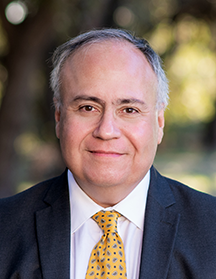• Hector Bojorquez • Knowledge is Power • September 16, 2021 •
 The current controversies in state houses across the country concerning certain pedagogies about race must not take aim at our nation’s decades-long work to ensure educational equity for all students. Educators, researchers and policymakers have worked diligently to improve opportunities and supports for students who have faced historical inequities based on race, language, gender and religion.
The current controversies in state houses across the country concerning certain pedagogies about race must not take aim at our nation’s decades-long work to ensure educational equity for all students. Educators, researchers and policymakers have worked diligently to improve opportunities and supports for students who have faced historical inequities based on race, language, gender and religion.
They have done so under the guidance provided by federal law, court cases and regulations all based on distinctively American notions enshrined in the U.S. Constitution. Attempts to censor classrooms do not mean equity is no longer a priority.
Equity in education for the four federally-protected classes (race, national origin, gender and religion) has enabled educators and the communities they serve to identify incontrovertible problems and address them. Federal regulations for equity in education are the reason we take steps to pinpoint achievement disparities. It is why we can speak to communities in disadvantaged parts of our country and say, “We can solve these issues together,” and then roll up our sleeves and get to work.
Equity in education has created opportunities for seven decades to better the lives of students by focusing efforts on where they are most needed. We have made many strides together as a nation, such as improving graduation rates and literacy, because of national support and federal laws protecting students’ rights. U.S. education is not an abject failure; it is constantly improving. And it does so because of equity and education civil rights policies and actions.
Across the political spectrum, many people have worked together for student opportunities, in different ways and sometimes through spirited discussions, because we understand that, with an excellent, equitable system, our students will have the opportunity for a better life, our economic systems will thrive and our democracy will flourish.
We stand by equity in education because we instinctively understand it to be part of our American identity. That is why, while we may not be able to cite case law, we know what these protections mean in our children’s lives. And we dedicate ourselves to visions of equity because it speaks to a basic national character that does not stand idly by when students in a predominantly Black or Latino neighborhood do not have access to the good education that is provided to other students across town.
Our dedication to educational equity speaks to our country’s sense of fairness and dignity that is outraged when we see students persecuted because they are LGBTQ. It is why we shake our heads in disgust when we see that, in some other countries, girls are not able to go to school. And we protest when students of color are treated like criminals in classrooms.
While these examples may seem to represent the most basic protections that we take for granted, we must take this time to affirm that equity in education is the law. It is how we move forward. It is the lens through which each generation rededicates itself to our national character.
Ultimately, we must remember that equity is based on honorable laws, like the Civil Rights Act of 1964, that affirm the hopes and dreams of generations of Americans. It is our task to hold ourselves accountable to those hopes and dreams. Censorship in classrooms and attempts to whitewash history lessons do not supersede federal laws the protect students’ civil rights.
[©2021, IDRA. This article originally appeared in the September 16, 2021, edition of Knowledge is Power by the Intercultural Development Research Association. Permission to reproduce this article is granted provided the article is reprinted in its entirety and proper credit is given to IDRA and the author.]



